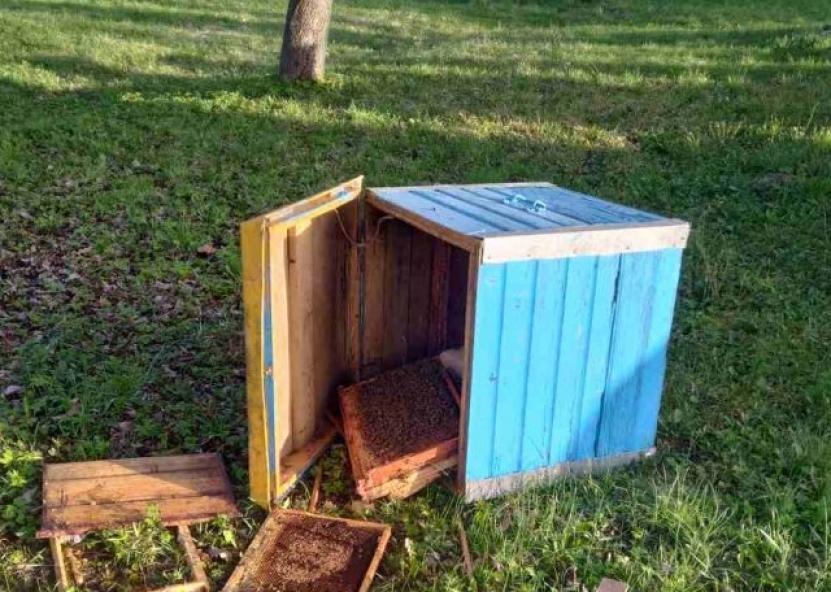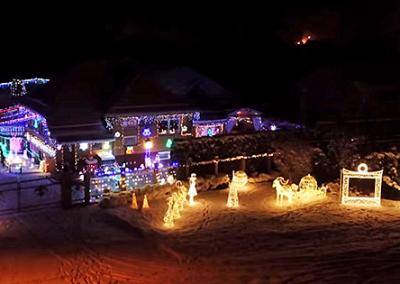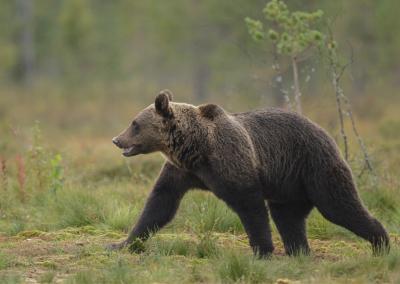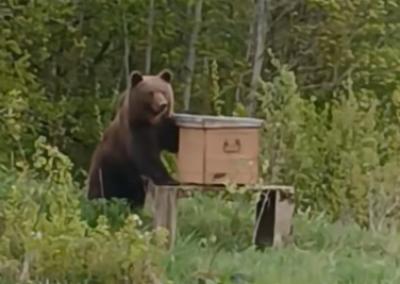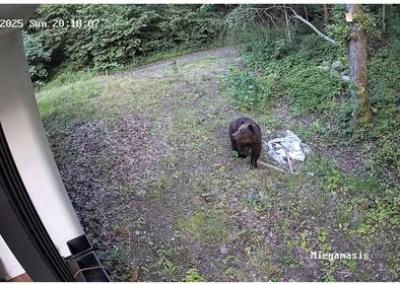Sarakalnis resident convinced honey lured a bear to his homestead
Povilas Rukas (77), a resident of Sarakalnis, confidently told "Utena Diena" that a bear that visited his homestead turned over and damaged his beehive. All the combs fell out of the hive, and the bee dragged the blanket inside, which was meant to protect the bees from the cold, to a nearby spruce grove, where it is still lying around today. Moreover, the man claimed to have seen a teddy bear in the yard some time later. At first he thought it was a dog, but when he got closer he saw that it was a baby bear. He was brown, handsome, with a big, pointed nose. And not at all barking“, – smiling, Mr Rukas described the animal, which he had seen in the flesh for the first time in his life. He said that the bear did not run away when it saw the man – it slowly trotted to where its mother was probably waiting for it.
When asked if it would not be scary for him to live in his farmhouse from now on, knowing what kind of four-legged neighbours he has, the man replied. He thinks he's dead. That's what people do in Siberia.“
P. Ruk, who lives in the middle of the forest, said he has seen deer, knows where badgers live, and once even watched them play. Janina Stonienė, his neighbour, admitted that when she is tidying up her flower gardens, she always thinks there is something blowing or buzzing nearby. "Maybe that bear is wandering around somewhere nearby", wondered the Sarakalnis resident, who uses her phone to record the occasional deer or other animals that eat the tulip blossoms she grows.
Tomas Zubovas, head of the Utena branch of the Lithuanian Hunters' and Fishermen's Association, could neither confirm nor deny to "Utena Diena" that a bear had visited the Sarakalnis homestead near Kirdeikiai, as the hunters do not have any concrete evidence to prove it. Well, since this area is close to the Ignalina region, where there have been similar cases, it is quite likely that it was a bear, as these animals are nothing new in our forests today. Bears migrate and do pass through our forests," said T. Zubov, adding that hunters in the district's forests have installed CCTV cameras to monitor the migration of the beasts and the size of their population. He said that these cameras have recorded a bear on more than one occasion, but this was not this year, but a long time ago.
„As far as I know, the bear population in both Estonia and Latvia is increasing. In Estonia, bears are even hunted, but of course there is a limit. When the population increases, the animals automatically look for new areas and migrate – it all happens in a tendentious and natural way“, – T. Zubovas shared his knowledge. When asked how to behave when encountering a bear, Zubov stressed that the most important thing is not to provoke the animal, not to approach it in any way, and to try to leave the place of the encounter as calmly as possible, to avoid drastic actions, and to avoid running away.



































































































